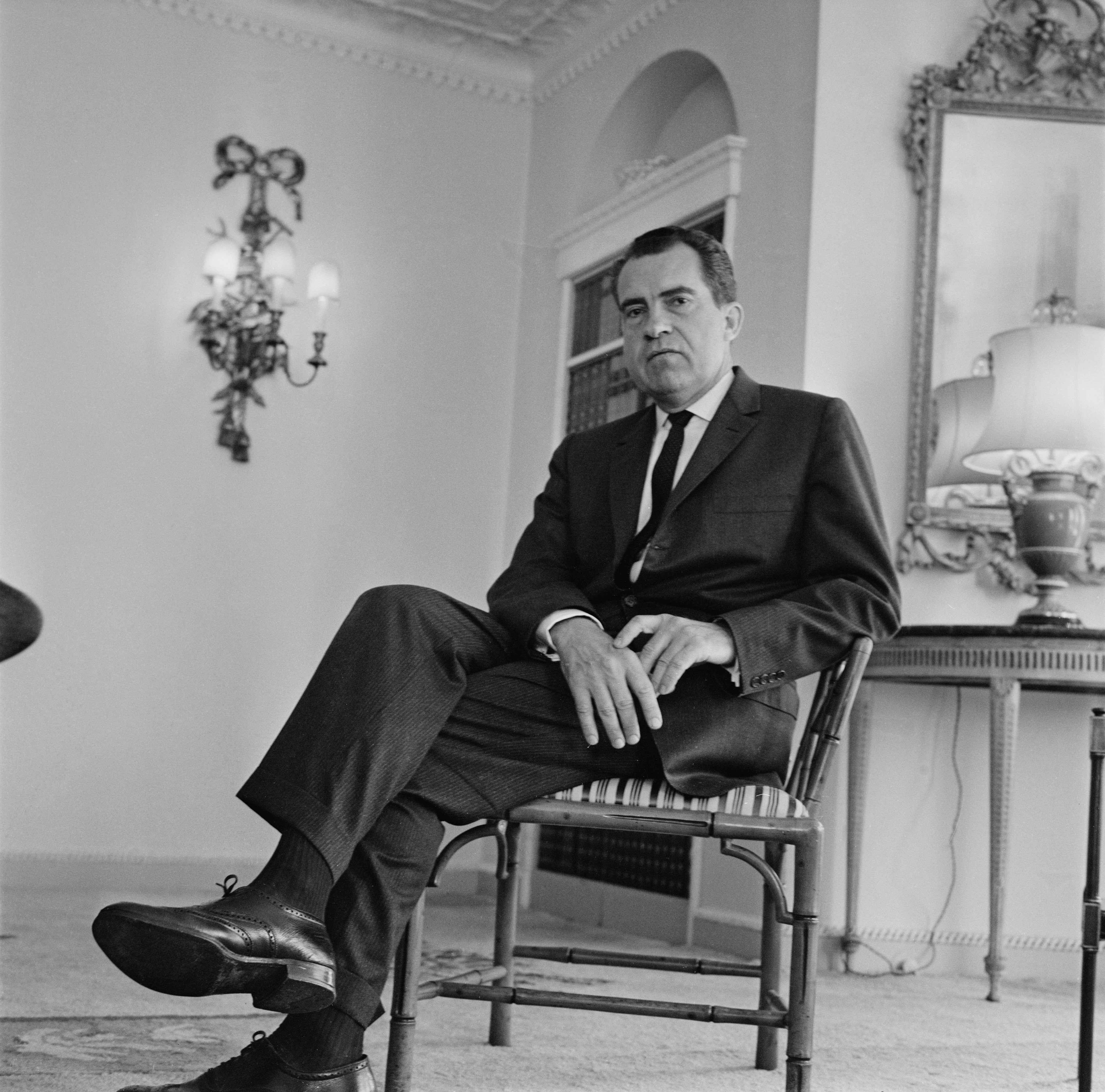Fifty years after Richard Nixon closed ‘the gold window’, the global economy is still not flexible enough
Nixon wanted to extricate himself from an unwinnable war, deliver a job-creating programme and raise the level of government spending. It will all sound familiar to Joe Biden, writes Phil Thornton


Friday marked the 50th anniversary of the shock delivered to the global economy when US president Richard Nixon announced in a televised address that he was “closing the gold window”. In plain English, he was ending the convertibility of the US dollar to gold at $35 an ounce, as well as its fixed links with other major currencies.
It ended a world put in place in 1944, towards the end of the Second World War, that only people now in their seventies would have experienced first hand. The dollar’s value in gold was fixed at 1/35th of an ounce and 44 governments pledged that their currencies could be converted to dollars at a fixed exchange rate with room to move by just 1 per cent either side.
Trickie Dickie broke the link because the global economy had grown so fast, the US government could not back it up with gold. On top of that he wanted to extricate himself from an unwinnable war (Vietnam), deliver a job-creating programme, and raise the level of government spending. Replace some words in that previous sentence with “Afghanistan”, “American Jobs Plan” and “American Rescue Plan” and it all feels quite familiar.
These investments would hardly have been possible within what John Maynard Keynes called the “barbaric relic” of the gold standard. This is why calls by some “gold bug” economists, such as rejected US federal reserve candidate Judy Shelton, for a return to a fixed regime in the face of soaring government debts should be rejected.
As Jeffrey E Garten, a former dean of Yale Management School, argues in his book Three Days at Camp David, the shock rupture from gold did bequeath the world a decade of inflation and removed the only anchor for the international financial system, but the three days of negotiations between Nixon’s top brass over the weekend at Camp David can be seen as an “impressive achievement”.
Floating exchange rates served the US and the world much better than fixed rates: countries no longer had to sacrifice economic growth to maintain an overvalued exchange rate. Floating exchange rates allowed countries to cope with major shifts in the world economy in a smoother and less undramatic way. Governments also started to cooperate more, first through the G7 that turned into the G20, and on trade, first through GATTS and then the World Trade Organisation.
If anything, the shock delivered first by the global financial crisis and then a decade later by the outbreak of Covid-19 has shown that the global financial system is still not flexible enough. Recent ground-breaking academic research by proponents of modern monetary theory (MMT) has sought to prove that governments do not need to impose painful austerity measures but can let deficits rise by printing money.
As key advocate Professor Stephanie Kelton points out, there are no constraints on the federal budget. “The dollar is no longer tied to gold. The US issues a freely floating ‘fiat’ currency so it doesn’t need to tax or borrow before it can spend,” she writes in her book The Deficit Myth.
The UK could operate MMT by mandating the Bank of England to buy bonds directly from HM Treasury. In other words, if the government needed to raise money to fund, say, long-term green investment, the Treasury can create a bond whenever it wishes and the Bank of England may buy it directly from it, without ever involving private banks. As UK advocates such as Tax Research UK’s Professor Richard Murphy argue, the Treasury can now run an overdraft at the Bank of England.
If that is not controversial enough, another reset could be delivered by a wholesale debt cancellation or “jubilee” that would relieve developing and emerging economies of the burdens they will never be able to repay.
At first glance that looks impossible: total global debt is now more than three times the size of countries’ economic output. But the other way of looking at it is to say that it is hard to see it being repaid other than over the longest possible time horizon. But as J Paul Getty is reputed to have said: “If you owe the bank $100 that’s your problem. If you owe the bank $100m, that’s the bank’s problem.”
The rich world has made some efforts to relieve the debts of poorer countries by cancelling the debts held by the G20 nations and the approval by the International Monetary Fund’s 190 members of an allocation of its own currency, the Special Drawing Rights (SDRs), equivalent to $650bn (£470bn). Of this about $275bn goes to emerging markets and developing countries, including low-income countries.
More than 215 organisations urged the G20 and IMF to issue $3tn in global reserves. Even leading figures such as former UK prime minister Gordon Brown and former US Treasury secretary Lawrence Summers called for an allocation of $1tn.
The actual number may have missed those targets, but the principle was established that the IMF’s balance sheet can be used to boost world liquidity. In 2009, Zhou Xiaochuan, governor of the People’s Bank of China, proposed that the SDR could become a “super-sovereign” reserve currency that would serve as the “light in the tunnel for the reform of the international monetary system”.
MMT, mass debt cancellation and the emergence of the SDR as a reserve currency all sound crazy. But then abandoning the gold standard and letting currencies float around was not on the horizon until President Nixon announced it on 15 August 1971.
Phil Thornton is a journalist and consultant covering all areas of business and economics, including macroeconomics, world trade, financial markets and tax and regulation
Join our commenting forum
Join thought-provoking conversations, follow other Independent readers and see their replies
Comments
Bookmark popover
Removed from bookmarks